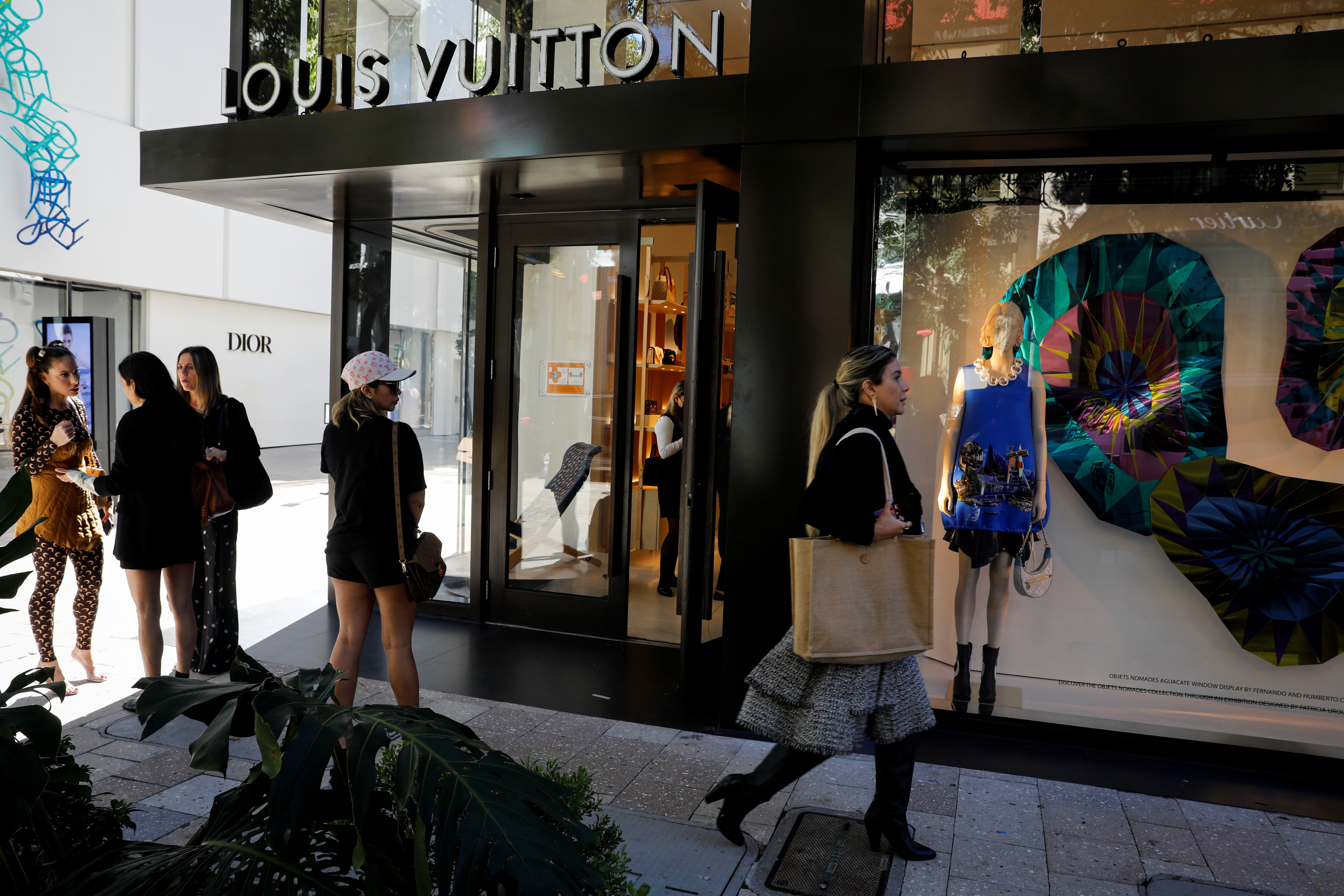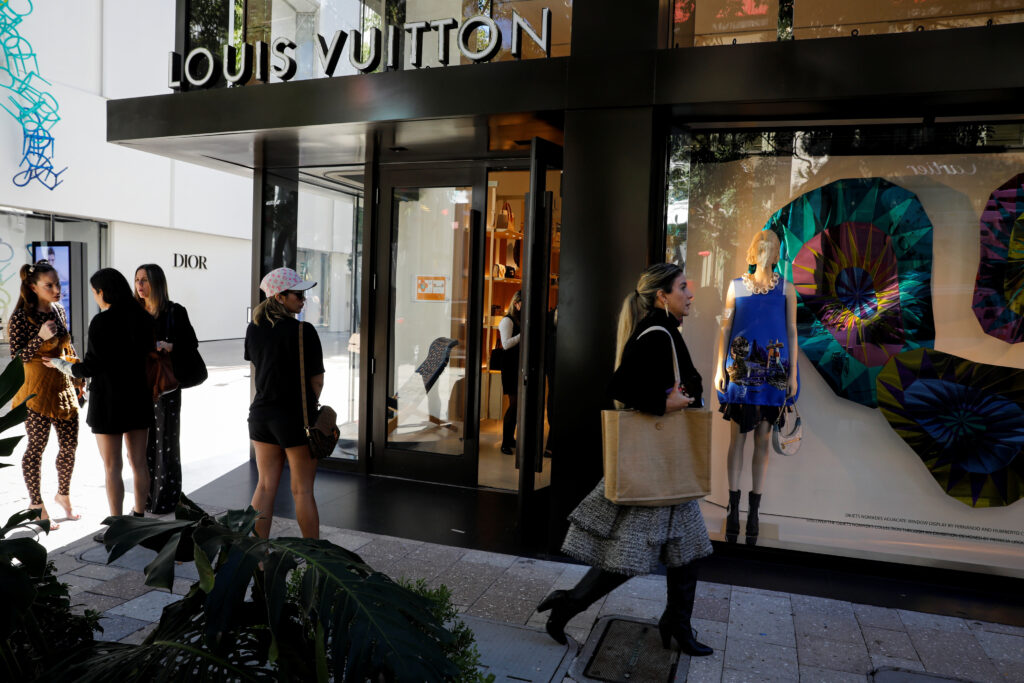
People walk past the Louis Vuitton store at Miami Design District, in Miami, Florida, U.S. November 30, 2021. REUTERS/Marco Bello Acquire Licensing Rights
PARIS, Oct 10 (Reuters) – Luxury goods bellwether LVMH (LVMH.PA) reported a 9% rise in third quarter revenue on Tuesday, marking slower growth as a strong wave of post-pandemic spending eases due to rising inflation and economic turbulence.
“After three roaring years, and outstanding years, growth is converging toward numbers that are more in line with historical average”, LVMH chief financial officer Jean-Jacques Guiony told analysts.
LVMH, which owns labels including Louis Vuitton, Dior, Tiffany and Bulgari, said revenue came to 19.96 billion euros ($21.16 billion), up 9% year-on-year, stripping out the effect of currency fluctuations and acquisitions. Total revenue rose 1% year-on-year.
The fashion and leather goods division, home to Louis Vuitton and Dior, recorded sales growth of 9%, compared to analysts’ expectations for 10% growth.
LVMH is facing slowing demand for high end goods in the United States and Europe, where rising prices have prompted shoppers — especially younger generations — to pull back from a post-pandemic spending euphoria, while the recovery in China has been uneven.
Guiony noted that while business slowed in Europe over the quarter, there was not a marked change in demand for fashion and leather goods from China compared to two years ago, except that more purchases are being made outside of the mainland as travel resumes.
In the United States, there was little change in trends, according to Guiony.
The wines and spirits division posted a 14% revenue decline over the quarter, with the company flagging less demand for Champagne over the period, while the weak economic environment in the U.S., and a slower-than-expected bounce back in China affected demand for Hennessy cognac.
LVMH is the first major global luxury firm to report earnings this quarter and gives investors an insight into what to expect from rivals. Hermes and Kering report on Oct. 24.
“This seems good enough to support the share price, as buyside expectations were possibly more muted, as the significant market derating suggests,” said Luca Solca, analyst with Bernstein, noting the company faced a tougher comparison period following strong performances in China, the United States and Europe a year ago.
Investors have recently lowered their expectations for the luxury sector and around 96 billion euros has been knocked off the value of LVMH since April.
The French luxury group was last month unseated as Europe’s most valuable listed company after a 2-1/2 year long reign by Danish drugmaker Novo Nordisk (NOVOb.CO) NOVOb.CO, which was boosted by the growth of anti-obesity drug Wegovy.
A stronger euro against the U.S. dollar than a year earlier also impacted the company as U.S. sales were worth less when converted back into its home currency. The negative currency impact was worse than anticipated, said Guiony, noting he expected it to negatively affect margins in the second half, although some of that would be offset by hedging strategies.
The currency impact is expected to affect European companies with large U.S. operations this earnings season.
($1 = 0.9433 euros)
Reporting by Mimosa Spencer
Editing by Ingrid Melander and Josie Kao
: .


